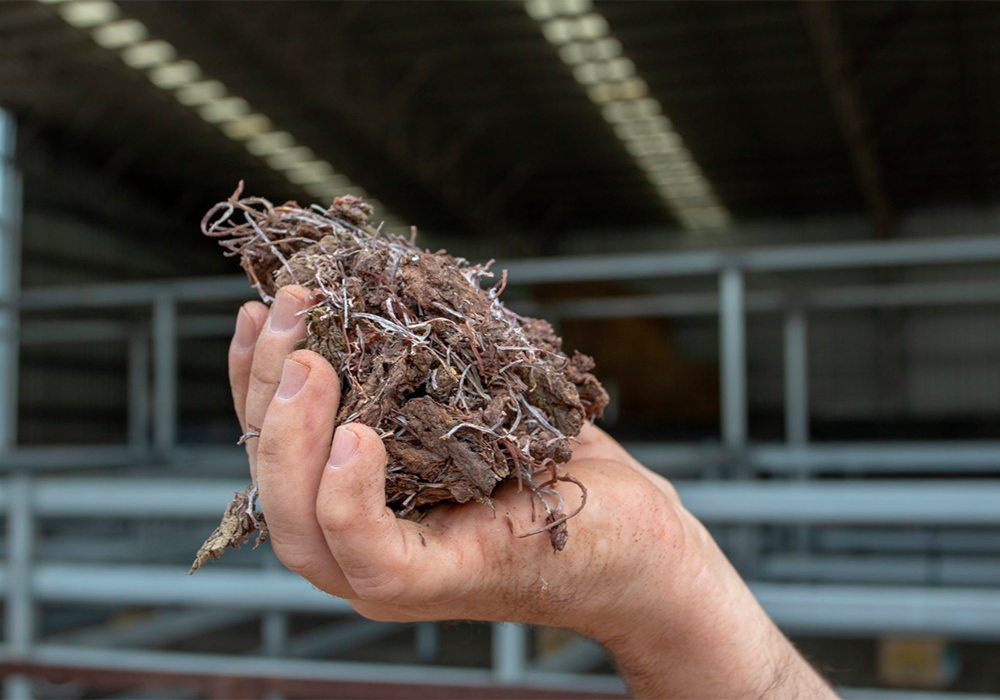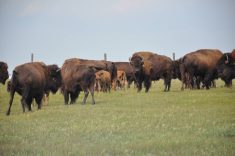Researchers at University of California, Davis have found a simple marine supplement that might help reduce cattle’s methane emissions.
“We came across a study by James Cook University and CSIRO (Commonwealth Scientific and Industrial Research Organization, Australia) that showed that a specific seaweed, Asparagopsis taxiformis, had anti-methanogenic properties and, in the lab, was able to reduce methane by over 90 percent at a two percent level of inclusion,” said Ermias Kebreab, professor and Sesnon Endowed Chair of the Department of Animal Science and director of the World Food Center.
Read Also

Trump’s tariffs take their toll on U.S. producers
U.S. farmers say Trump’s tariffs have been devastating for growers in that country.
“Asparagopsis taxiformis contains halogenated compounds such as bromoform in its cells that inhibit methane emissions. It is the most potent species because it contains the greatest amounts of halogenated compounds responsible for stopping methane from being formed by microbes in the rumen. This study was lab based and we thought that it was promising enough to try it out with real animals.”
According to the study report, 21 Angus-Hereford cross beef steers were randomly allocated to one of three treatment groups. The control group was fed a standard diet with no seaweed additive while the other two groups were fed two different inclusion rates (0.25 percent and 0.5 percent) of A. taxiformis. The steers were all were sourced from the same ranch and were approximately eight months old and weighed about 775 pounds at the start of the trial. Each steer was randomly assigned to an individual pen fitted with its own feed bunk and fed twice a day.
The seaweed species used as the additive was provided by CSIRO and had been collected from Humpy Island in Queensland by researchers from James Cook University. The seaweed was frozen and then freeze-dried and ground.
During the UC Davis study, molasses and water were mixed with the ground seaweed for palatability and better adhesion to each of the treatment feeds. All the feeds were hand-mixed for thoroughness for each animal.
Those in the control group also had molasses and water added to their daily feed to ensure that the seaweed was the only difference between the three treatments.
The steers were fed the seaweed supplement every day for five months. Four times a day they were offered an alfalfa pellet snack through a gas measuring device called GreenFeed that recorded the methane in their breath.
The results of the gas tests clearly showed the cattle that consumed doses of about 80 grams of seaweed gained as much weight as their herd mates yet burped 82 percent less methane. There was no change in efficacy over time.
In addition to the substantial drop in methane, a taste-test panel found no difference in the flavour of beef from the seaweed-fed steers compared to the control group.
Working with his PhD student Breanna Roque, Kebreab and his team built on their earlier work with dairy cattle, which was the world’s first experiment reported using seaweed in cattle feed. In 2018, they were able to reduce methane emissions from dairy cows by more than 50 percent using a seaweed supplement for two weeks. Subsequent tests showed that seaweed has no impact on the taste of milk.
Several challenges exist to move the supplement from trials to barns.
“A local farmer is going to do a trial in June using seaweed,” said Kebreab. “(The study) has had a good reaction so far.”
The first challenge is how to produce enough seaweed for a global market. The second challenge is how to provide the supplement to free range cattle.
“We will be doing some work to see how we can get around that,” he said. “However, lots of grazing animals are supplemented with minerals, vitamins, etc., so this can be bundled as well.”
The next step, though, is providing enough seaweed at a high quality and sustainable level. Growing the seaweed would need to be done using aquaculture techniques in ocean and land-based systems worldwide, each system addressing local challenges.
The report stated that processing techniques are evolving with the aim of stabilizing the feed supplement supply and the economics of the supply chain.
Kebreab stated in the report that long-haul transportation should be kept to a minimum because cultivation in the region of use is recommended.
Blue Ocean Barns and Symbrosia are trying to scale up seaweed production.
Blue Ocean Barns sources, processes, markets and certifies seaweed-based additives for cattle feed. Kebreab is a scientific adviser to the company.
While the test supplement used in the study was small, research work is ongoing to define what the daily supplement intake should ideally be.
“The work we have done is based on an assumption of daily intake,” he said. “We will do more work to refine how much, when the seaweed should be given, and conditions in which seaweed works best. We will (also) be developing a protocol so farmers can claim credit.”
The research was published in PLOS ONE.















